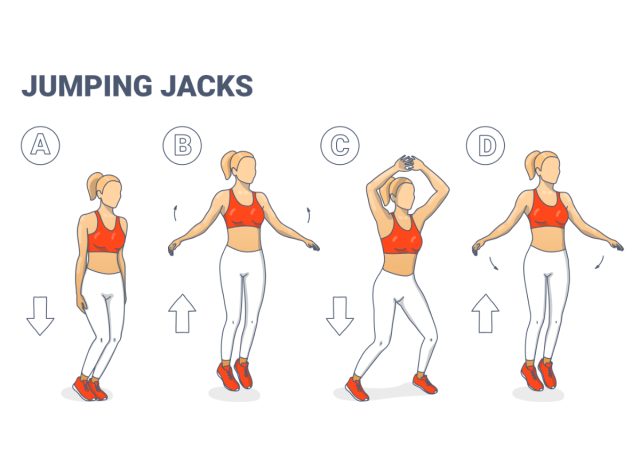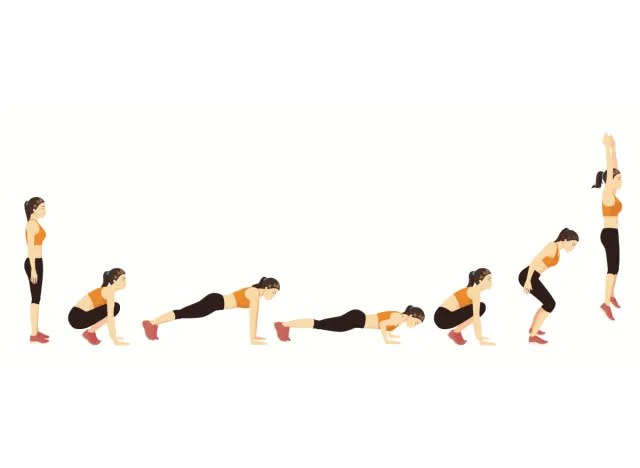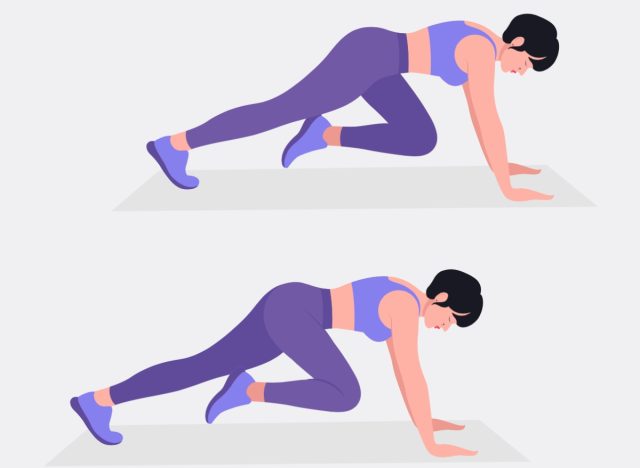Many of my clients express concerns about belly fat and how to effectively reduce it to enhance both their health and physical appearance. Although it’s not possible to lose fat in specific areas through targeted exercises alone, adding cardiovascular activities to your exercise plan can significantly help in lowering body fat, including the persistent fat around the abdomen. If you’re curious about the ideal frequency of cardio exercises for shedding belly fat, you’ve come to the right place. This article will delve into the advantages of cardio for belly fat reduction, identify the best frequency for cardio exercises, and introduce a cardio workout tailored to address belly fat.
Incorporating consistent cardiovascular exercises into your workout regimen is crucial for trimming down belly fat. Striking the right mix between moderate-intensity exercises and high-intensity interval training, coupled with maintaining a nutritious diet, plays a vital role in overall fat reduction and enhancing your health. It’s important to seek advice from a healthcare provider or fitness expert before embarking on a new workout regimen, particularly if you have existing health issues.
Keep reading to learn more, and when you’re finished, be sure to check out 5 Most Effective At-Home Workouts for Weight Loss.
How is cardio beneficial for belly fat loss?


Cardiovascular exercises, or cardio, are activities that raise your heart rate and boost your body’s oxygen use. Regular participation in cardio workouts provides several benefits for those aiming to lose belly fat:
1. Caloric Burn
Cardio exercises, such as running, cycling, and swimming, burn calories, creating a calorie deficit that’s essential for weight loss. As you consistently burn more calories than you consume, your body taps into stored fat reserves, including those around the abdominal area.
2. Metabolism Boost
Cardio helps boost your metabolism, leading to increased calorie expenditure even when you’re at rest. High-intensity cardio, such as interval training, is particularly effective in revving up your metabolic rate.
3. Reduction of Visceral Fat
Visceral fat, the fat stored around your internal organs, is associated with various health risks, including cardiovascular diseases and diabetes. Cardio helps reduce visceral fat, contributing to a healthier overall body composition.
How often should you do cardio to lose belly fat?


The frequency of cardio workouts depends on individual factors such as fitness level, goals, and time constraints. However, a general guideline for losing belly fat through cardio is as follows:
Moderate-Intensity Cardio
Aim for at least 150 minutes of moderate-intensity cardio per week. This could include activities like brisk walking, jogging, or cycling. Break it down into sessions lasting at least 30 minutes on most days of the week.
High-Intensity Interval Training (HIIT)
Incorporate HIIT workouts into your routine two to three times a week. These short, intense bursts of activity followed by periods of rest are effective for burning calories and promoting fat loss, including in the abdominal region.
Here’s a sample cardio workout to lose belly fat:
1. Jumping Jacks


Start with your feet together and your arms by your sides. Jump up and spread your legs while simultaneously raising your arms overhead. Quickly return to the starting position by jumping again. Repeat for one minute, maintaining a steady and controlled pace.
2. Burpees


Begin in a standing position. Drop into a squat position, and place your hands on the ground. Jump your feet back, landing in a plank position. Perform a pushup, then jump your feet back toward your hands. Explosively jump into the air, reaching your arms overhead. Repeat for 45 seconds, focusing on proper form and engaging your core.
3. Mountain Climbers


Start in a plank position with your wrists directly under your shoulders. Bring one knee toward your chest, then quickly switch legs. Keep your core engaged, and maintain a quick, rhythmic pace. Repeat for 45 seconds, alternating legs with each movement.
4. Rest
Take a 30-second rest period to catch your breath and prepare for the next round. Focus on controlled breathing and staying hydrated.
5. Repeat the Circuit
Complete the entire circuit (jumping jacks, burpees, mountain climbers, rest) three times for a comprehensive HIIT workout.
Frequently Asked Questions (FAQs)
1. How much cardio do I need to lose belly fat?
To effectively lose belly fat, it is recommended that you engage in moderate-intensity cardio exercises for at least 150 minutes or vigorous-intensity activities for 75 minutes a week. Distributing these minutes across the week, such as 30 minutes a day for five days, can help manage and reduce belly fat effectively.
2. What types of cardio are best for losing belly fat?
- Running or jogging: Helps in burning calories and improving heart health.
- High-Intensity Interval Training (HIIT): Mixes short bursts of intense exercise with periods of rest or lower-intensity exercise.
- Cycling: Both indoor and outdoor cycling can significantly burn calories and reduce body fat.
- Rowing: A full-body workout that enhances muscular strength and cardiovascular endurance.
3. Can I lose belly fat by doing cardio only?
While cardio is crucial for burning calories and losing fat, combining it with strength training and a healthy diet is more effective for long-term belly fat loss. Strength training helps build muscle, which can boost your metabolism and improve your overall body composition.
4. How soon will I see results from doing cardio?
The time it takes to see results from doing cardio exercises varies for each individual, depending on factors like intensity, frequency, diet, and overall lifestyle. On average, noticeable results can be seen within two to four weeks of consistent, daily cardio exercise combined with a balanced diet.
5. Are there any risks associated with doing too much cardio?
Yes, there are risks associated with excessive cardio, including the possibility of overtraining, which can lead to fatigue, injury, and decreased performance. It’s important to listen to your body and incorporate rest days to allow for recovery.
6. How does diet play a role in losing belly fat?
Diet plays a crucial role in losing belly fat. Consuming a balanced diet low in processed foods and high in fruits, vegetables, lean proteins, and whole grains can help reduce overall body fat, including belly fat. Additionally, staying hydrated and limiting sugary drinks and alcohol can contribute to a healthy weight loss plan.
7. Should I focus on low-intensity cardio or high-intensity cardio?
Both low-intensity and high-intensity cardio exercises can be effective for losing belly fat. Low-intensity, steady-state (LISS) cardio is less taxing on the body and can be sustained for longer periods. Meanwhile, high-intensity interval training (HIIT) is more time-efficient and can lead to faster results. Ideally, a combination of both types of exercise tailored to your fitness level and preferences will yield the best results.







